Jón Jónsson, 41, left the Bonnington Hotel on the Swords Road, Co Dublin, on 9 February 2019. CCTV footage showed him passing the entrance to Highfield Hospital, heading towards Collins Avenue junction.
No further information is publicly known about his whereabouts.
His father, Jón Ingimundur Jónsson, was not mentioned in any press releases or articles about the disappearance of his son and has never been contacted by the authorities.
But Mr Jónsson believes there is a possibility his son could still be alive.
We need your consent to load this rte-player contentWe use rte-player to manage extra content that can set cookies on your device and collect data about your activity. Please review their details and accept them to load the content.Manage Preferences
RTÉ and RÚV, the public service broadcaster in Iceland, have now joined forces to work on a podcast series 'Where is Jón?' examining the disappearance of Mr Jónsson with the full cooperation of his family.
It tells the story of how Mr Jónsson arrived in Ireland the previous day to attend the Dublin Poker Festival and take a holiday with his fiancée Kristjana Guðjónsdóttir.
Between gambling and drinking, Mr Jónsson Sr said there was too much happening in his son’s life the night he vanished, but said he always identified with him.
"I know it, because I am an alcoholic, and I have been in a few relationships. And I know how to live a f****d up life. Even I have been trying all the time to making everything look good.
"For myself, I have the feeling, why not run away and start a new life? It is so nice to do that in the head, you know."
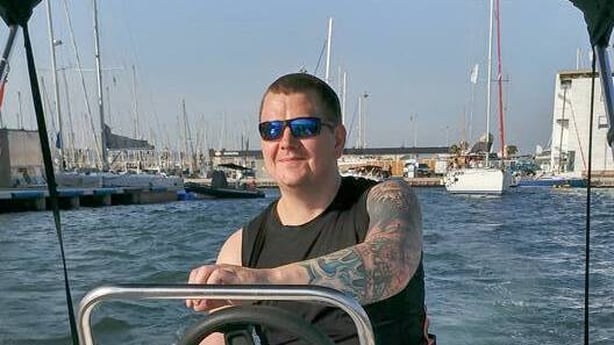
Mr Jónsson Sr said his son cut contact with him and the paternal wing of the family after a disagreement over the family farm, which Mr Jónsson and his former wife Nina rented for two years in their early 20s.
At the time of Mr Jónsson’s disappearance, they had not spoken in 15 years. He did not go to Dublin when Mr Jónsson disappeared.
"When you have one time being in a bad situation, like he was on the farm, and you have to take a bad decision like he did there, and even that bad, you stop talking to half of your family.
"What will you do next time you are in a bad situation?"
New sources
Other sources, who have never spoken to the authorities about the case, have contributed to the podcast and revealed new information about the case, and Mr Jónsson’s temperament.
When he landed on 8 February, Mr Jónsson got a taxi from the airport to the Bonnington Hotel, where the Dublin Poker Festival was taking place.
After the tournament concluded, CCTV footage showed Mr Jónsson playing for cash into the early hours of Saturday morning.
A poker player, known only as Conor, who spent most of the night with Mr Jónsson, has spoken for the first time.
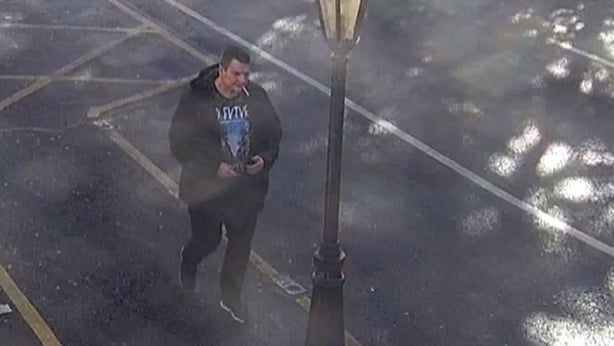
The English player spent roughly six to seven hours playing alongside Mr Jónsson the night before he vanished.
Conor said: "That's why I remember the event so well, because I was speaking to him, and we were drinking together. I remember his drink very well because it was so strange.
"He was drinking vodka, whiskey and Red Bull together, and I remember that because we bought each other a few rounds."
According to Conor, Mr Jónsson lost a large amount of cash that night. He estimated that he lost four to five ‘buy-ins’ to games, which, at €500 a piece, amounted to at least €2,500 in cash.
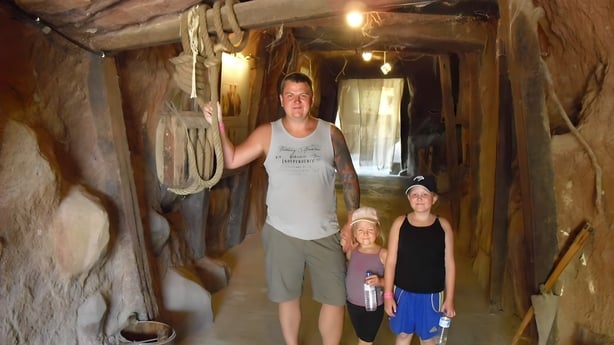
"I can say quite confidently that Jón lost a good four to five buy-ins on my table within a few hours.
"I did remember thinking, this could just be ignorance. I remember thinking that when he was losing quite a lot, let's say €2,500, I remember thinking that's maybe quite a lot for a taxi driver, but that's not to say that he didn't have other incomes or he didn't save up specifically for the tournament."
Mr Jónsson was the treasurer for a satellite tournament in Reykjavík that gave players admittance to the poker festival in Dublin. In addition to his own money, he also had about €2,500 in an envelope for buy-ins to the games for the Icelandic players flying over.
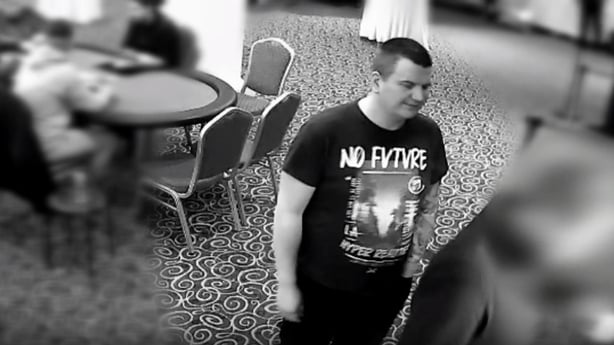
Despite his losses, Conor said Mr Jónsson did not appear frustrated. However, he said Mr Jónsson moved to another table at around 3am.
Eight hours later he disappeared.
His fiancée, Ms Guðjónsdóttir, refuted suggestions that Mr Jónsson’s disappearance was linked to financial losses before he went missing.
She said the couple had saved for the tournament and had a budget in excess of €5,000 for their 10-day trip, which included money for sightseeing after the Dublin Poker Festival.
The investigation
Mr Guðjónsdóttir filed a missing person's report at Santry Garda Station on 10 February that year. She said gardaí contacted her immediately but added that they profiled her partner.
"The attitude was like, he is probably just playing poker. He is probably somewhere having fun or something like that.
"So I was...tried to explain he wouldn't do it. He wouldn't just leave me alone in some country I don't know and go and have fun.
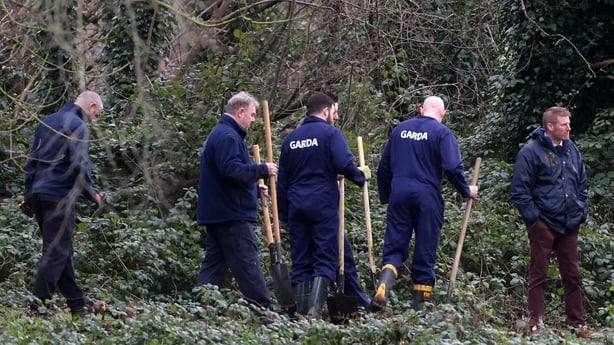
"That attitude I got always was he will come back, he will come back, don’t worry."
Since Mr Jónsson’s disappearance, gardaí have followed more than 270 lines of inquiry and conducted extensive searches, including a search last year of Santry Demense Park based on two anonymous letters, one sent to the gardaí and the other to a priest's house in north Dublin.
The podcast reveals the connection between this search and the recording of the series.
48 hours
Ms Guðjónsdóttir gave the series complete access to the last text messages she shared with her partner to reconstruct the final 48 hours of his life.
She also provided a copy of everything she wrote down in the days after Mr Jónsson went missing, which has not been disclosed before now.
Ms Guðjónsdóttir said she planned to go to Dublin with her partner on 8 February 2019 but discovered her passport was missing from the couple’s safe the night before their flight.
She said Mr Jónsson had checked their safe the day before the flight but never mentioned anything was missing, if he noticed at all.
Despite her upset, she said Mr Jónsson flew to Dublin without her. She secured an emergency passport and booked a flight for 9 February.
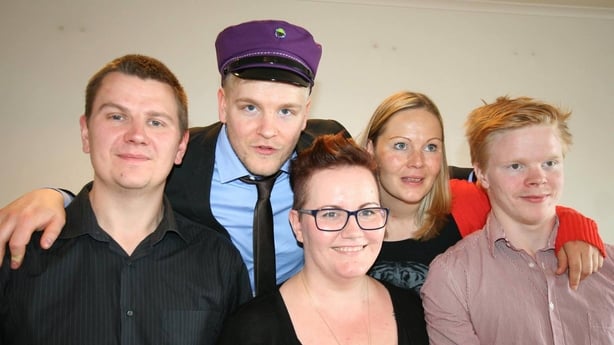
This gap in time allowed Mr Jónsson one day alone in Dublin. By 11am the next day, he had vanished.
Ms Guðjónsdóttir said her fiancé had called her briefly on her way to the airport on 9 February from a foreign number, because there was an issue with his phone. She said they continued to text as she waited at her departure gate.
She arrived in Dublin a little under 90 minutes before Mr Jónsson disappeared. When she reached the Bonnington Hotel, she said he was not answering her calls or texts.
She found him in their hotel room sleeping but he disappeared 30 minutes later.
Ms Guðjónsdóttir said she was frustrated Mr Jónsson did not disclose his losses over text. She said the pair had a brief exchange before she left the room to go for a cigarette, stopping in the lobby for a coffee.
During this time, Mr Jónsson got dressed and went downstairs. He walked past the hotel bar and out the front door at 11.05am. CCTV captured him leaving the Bonnington hotel.
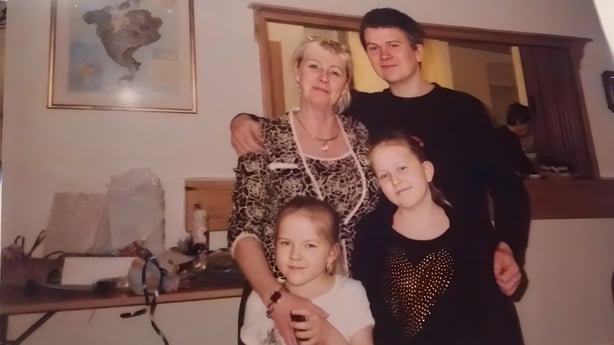
But Ms Guðjónsdóttir said she thought she heard his voice and her name being called as she waited for her coffee but dismissed it as she was in a foreign city.
When she went outside the hotel’s main door for her cigarette, a man who walked like Mr Jónsson was heading towards the main Swords Road.
That was the last time anyone saw him.
"What had happen if I had just have called his name? Would it change everything? Yeah, this moment haunts me."
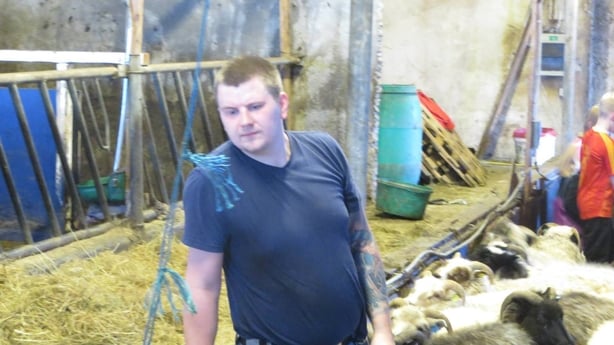
Mr Jónsson, a taxi driver by trade, left the hotel without his passport, phone or wallet; however, he was carrying his hotel room key.
Ms Guðjónsdóttir played in the poker tournament that day but said she grew concerned when Mr Jónsson did not return to the hotel, evidenced by several text messages read out during the podcast.
When she had not heard from Mr Jónsson by 6pm, she approached the Bonnington Hotel front desk with his picture. The following morning, she walked to Santry Garda Station.
Where is Jón?
There are only four possible explanations for what happened to Mr Jónsson.
He had an accident and his remains remain undiscovered, he died by suicide, he decided to disconnect from his family and begin a new life, or someone killed him and hid his body.
According to the podcast’s producer Liam O'Brien, the purpose of the six-part series is to attempt to bring Mr Jónsson home.
He said: "We're really hoping the series might help bring Jón home, and we know that sounds very aspirational. But having worked on this story over the last 18 months, we do believe there is some knowledge, in both Iceland and Ireland, as to what happened to Jón.
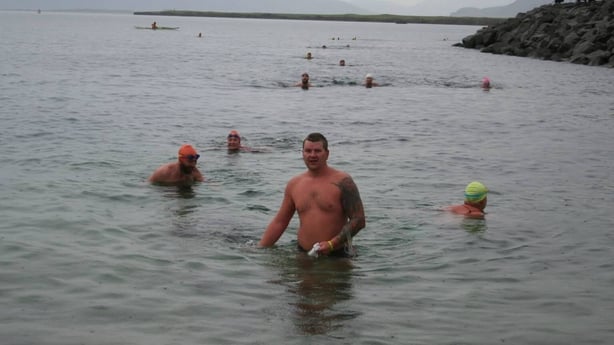
"Our hope is that whoever has that knowledge may now decide to finally step forward or anonymously reach out to gardaí, Icelandic police or ourselves."
Most Icelanders view Ireland as a "safe country," the series' Icelandic/RÚV producer Anna Marsibil Clausen said. She added that people still remember Mr Jonsson’s disappearance.
"I think most Icelanders remember Jón going missing. Ireland, as our next-door neighbour, seems like such a safe country.
"So when Liam, on a completely unrelated visit to Iceland in 2023, suggested we look into it, I was quick to jump on board. I wasn't sure there was much we could add but it turns out he has great instincts."
Ms Clausen said the case was at a "standstill" before the podcast, adding that the media can play a critical role in keeping stories like Mr Jónsson’s alive.
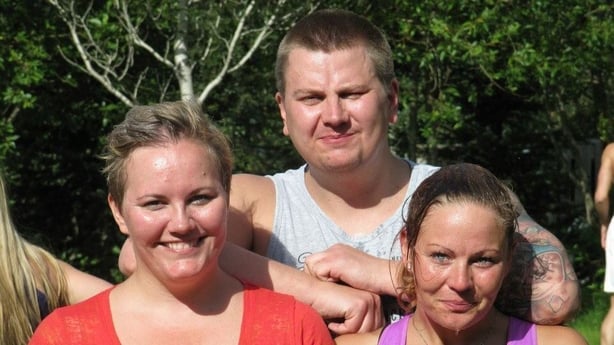
"In this particular case the bilingual - and bicultural - aspect is huge.
"Coordinating between police forces internationally is a lot more complicated than coordinating between public service broadcasters, so hopefully our input will actually help gardaí and Icelandic police take further steps."
Where is Jón? is available from wherever you get your podcasts. Episodes are published every Monday.
If you have any knowledge or information on the disappearance of Jón Jonsson, please contact your local garda station or email documentaries@rte.ie







